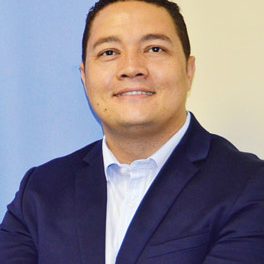
Beware of identity theft

By Johnny Truter
Head of Forensic Services at Bank Windhoek.
The year 2018 turned out to be a challenging year for most people. Now is the time to look forward to a well-deserved resting period of sleep-ins, late brunches, evening braais and just relaxing with family and friends. On the other hand, fraudsters are also looking forward to the holiday break, though for completely opposite reasons.
Being masters of human behaviour, fraudsters realise that the festive season is the time when most people relax their general vigilance. As a result, fraudsters are looking forward to defrauding people of their savings and bonus money during this period.
Financial institutions have invested significantly in people and technology to increase the security of the core banking systems. However, fraudsters know that the weakest link between the banking customers and their funds stored in bank accounts, are the customers themselves. Through social engineering, and their knowledge of human behaviours, fraudsters have mastered the art of targeting customers by tricking them to fall into their devious financial scams. They do this by manipulating customers to transfer their own funds into that of the fraudsters without knowing about it. Once the funds appear on the account, it is immediately withdrawn or transferred onwards.
There is always an element of identity theft present in these scams because fraudsters need to convince their victims that they are actually someone else. Having personal information like identity numbers, addresses, contact details, credit information and bank account numbers available, creates a sense of credibility in the minds of the victims who then lower their guard and act as requested by the fraudsters.
Identity theft
Identity theft, which is the practice of using someone else’s name and personal information, can happen in various ways. The so-called “Phishing” mail is quite popular where the criminal sends emails or an SMS to the victim. Once the victim responds, the fraudster collects the victim’s information without their consent. Others fraudsters target their victims on fake banking websites, online shopping, gaming sites and the use of public Wi-Fi facilities, which are compromised to do banking. It is advisable to never use public Wi-Fi for banking and social networking.
How to protect yourself
Provide credit card information only to reputable businesses.
Never let your card out of sight and never let anyone make a copy of the card’s front and backside.
Endeavour to monitor bank accounts often when on holiday.
Keep transaction records of credit card payments and verify the details against the bank account. In the event of unknown or fraudulent transactions on the bank account, the sooner it is noticed and your bank is informed of them, the higher the rate of successful recovery of stolen funds.
Report any fraudulent transactions as soon as possible. It may cause some inconvenience to attend to it immediately, but it will be worth the effort. Also report the fraud to the police, as the police can use the information to prevent more frauds or even arrest the culprits.
Doing online shopping is quite safe but there is always the possibility of fraud. Make sure the site used is secure with the https: prefix in the web address and the small lock icon is visible.
Lock personal documents away to protect it against theft.
Never react on phone calls or emails purporting from your bank that request you for personal or other banking details, rather call your home branch and confirm.
Place sensible transaction limits on your accounts. The Bank Windhoek Mobile App allows users to turn their cards on before transactions and to turn it off again, as protection against fraudulent transactions with the card.
Change your PIN and passwords frequently.












































